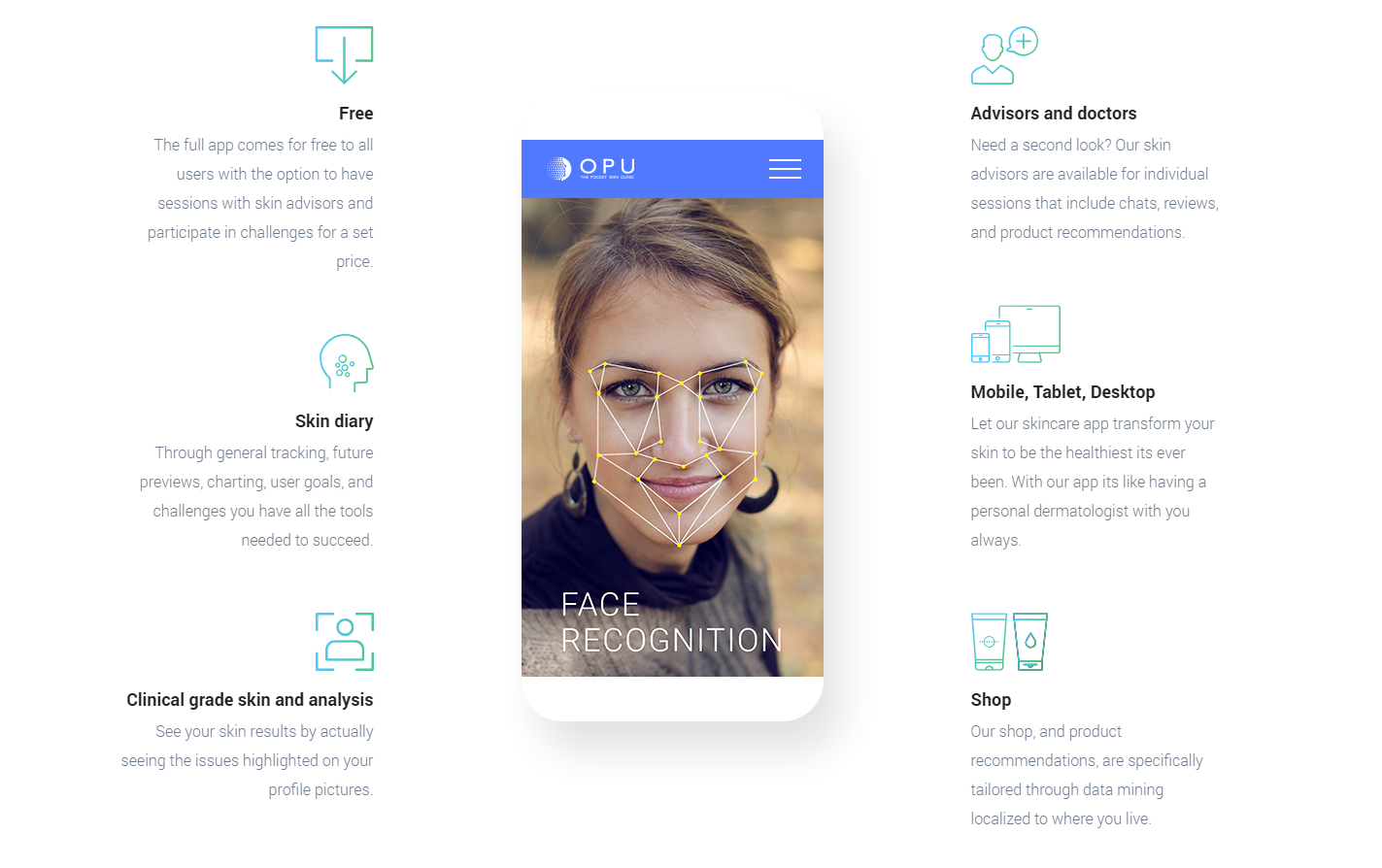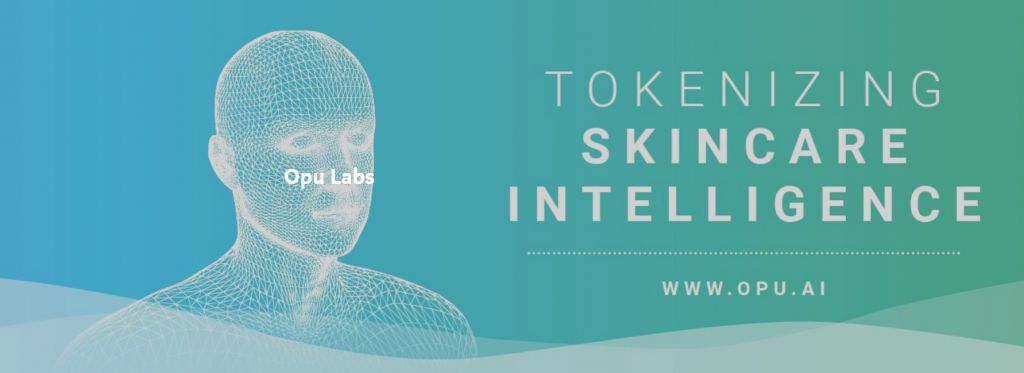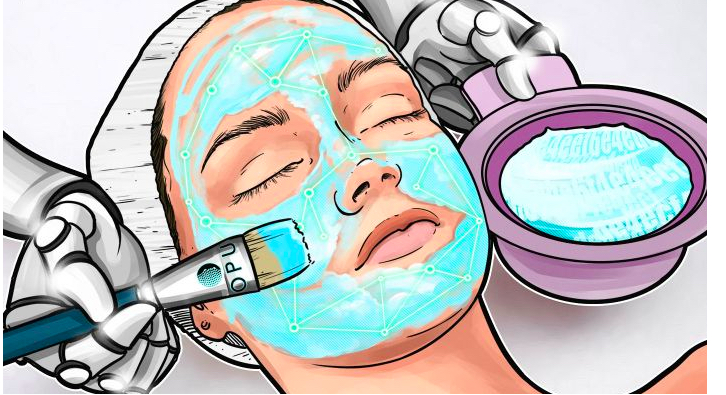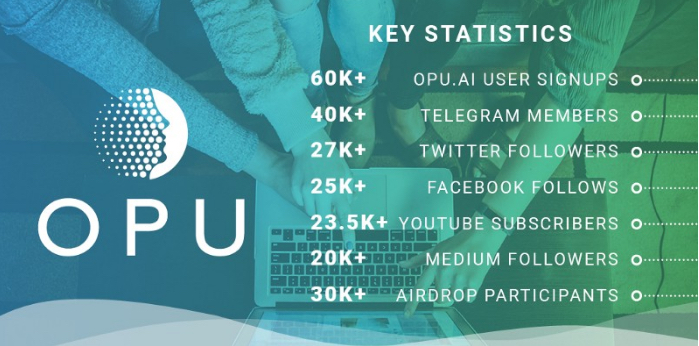
Opu Labs Aims To Connect Skincare Consumers Around The World One Facial Scan At A Time
The world may be flattening, but no single tool has yet gathered data on the skin of consumers and the products they apply from all corners of it. Opu Labs wants to provide that tool in the form of an app powered by a suite of advanced image analysis, artificial intelligence, search, e-commerce, blockchain and cryptocurrency technologies.
Set for launch in the third quarter of this year in select Asian markets and next year in the U.S., the so-called pocket skin clinic will scan people’s faces, assess various skin issues, including wrinkles, hyperpigmentation and redness, recommend remedies for those issues, enable tracking of the effectiveness of recommended remedies, and encourage reviews and repeat visits with digital coins. More than 20,000 people from 189 countries have already tried an online version of the Opu Labs app.
“You don’t need to be a rocket scientist to use it,” says Richard Reed, co-founder and COO of Opu Labs, which gets its name from the word “opulent.” “You can see what your skin looks like now, and what your skin should look like after treatment, and you can keep coming back and taking photos to see your progression.”

The app doesn’t cost consumers anything, and Opu Labs makes money by taking a cut of the sales of recommended products. It will propose products found on Amazon or alternative e-tailers available in the countries it serves. Opu Labs is also planning to release a professional edition for dermatologists and aestheticians that will carry a subscription fee.
“We completely personalize analysis and recommendation for you for free. You can use it as much or as little as you want. When you get advice, it’s the next best thing to going to an actual dermatologist,” says Reed. “It’s mass personalization. Everyone gets treated individually and, collectively, we all benefit based on the results.”
“We completely personalize analysis and recommendation for you for free. You can use it as much or as little as you want. When you get advice, it’s the next best thing to going to an actual dermatologist. It’s mass personalization. Everyone gets treated individually and, collectively, we all benefit based on the results.”
He stresses the Opu Labs app will rely on reviews from regular consumers, not experts or brands. In exchange for evaluating products or services on the Opu Labs app, consumers receive Opu coins that can be put toward further products or services. The app will learn from the reviews and rank products or services higher that are well-reviewed. At the outset, Opu Labs has no direct transactional connection to skincare companies, but it could deliver aggregate data to them.
“It doesn’t matter what country you are in, people love to hear from the experts, but they really want to know the experiences of real people,” he says. “That’s one of the major reasons why our technology is on the blockchain. In this age where everyone is worried about Facebook selling data, [it’s important] the data goes into the blockchain in a completely private way. You own the information. When you leave a review of a product, your data is verified, and everyone who sees a review from you knows it’s from a real person.”

The target audience for the Opu Labs app is women aged 18- to 35-years-old. The company describes them as highly-educated professionals, students and new mothers spending an average of $75 per month on skincare products and services. They have access to smartphones, tablets or computers. The Opu Labs app will roll out first for Android devices before expanding to iOS devices.
In the markets it enters, Opu Labs plans to tap dermatologists as advisors to consult on its platform and spread the word about it. For professionals, Reed describes Opu Labs as underpinning an initial screening process to collect details about a patient’s or client’s skin, suggest products or services at the doctor’s offices or spas, and prompt return appointments to measure outcomes of product suggestions.
“This is the new wave with blockchain and cryptocurrencies. Every company now is working on their cryptocurrency reward program because it solves so many problems for all sides of the [commerce] equation whether it’s skincare or a coffee shop. This is going to be the standard in the future.”
“We didn’t design Opu to replace dermatologists, but help them with initial consultations,” says Reed. “They see us as taking a huge patient load off their shoulders by helping them with that initial consultation. The nurse practitioners or other qualified people in the office can do the initial skincare analysis while the dermatologist is looking at people with serious medical issues.”
Opu Labs’ business model only works if people gravitate to its cryptocurrency proposition. Skincare and medical professionals will be allowed to dole out Opu coin rewards to incentivize patients and clients to come again or take them up on services.

“This is the new wave with blockchain and cryptocurrencies. Every company now is working on their cryptocurrency reward program because it solves so many problems for all sides of the [commerce] equation whether it’s skincare or a coffee shop,” says Reed. “This is going to be the standard in the future.”
Opu Labs is participating in another wave of the future: an ICO or Initial Coin Offering. Bitcoin Magazine defines an ICO as “a fundraising mechanism in which new projects sell their underlying crypto tokens in exchange for bitcoin and ether. It’s somewhat similar to an Initial Public Offering (IPO) in which investors purchase shares of a company.”
The public sale of Opu Labs’ tokens begins July 17, although it started to sell them via pre-sale on June 26. In white paper detailing the ICO and Opu Labs generally, the company divulges the worldwide supply of Opu coins will be limited to 12 billion tokens and 660 million Opu coins will be distributed through the ICO. Opu Labs has established a hard cap of $37 million to be raised with the ICO, and the ICO price for an Opu coin is nearly six cents per token.





Leave a Reply
You must be logged in to post a comment.